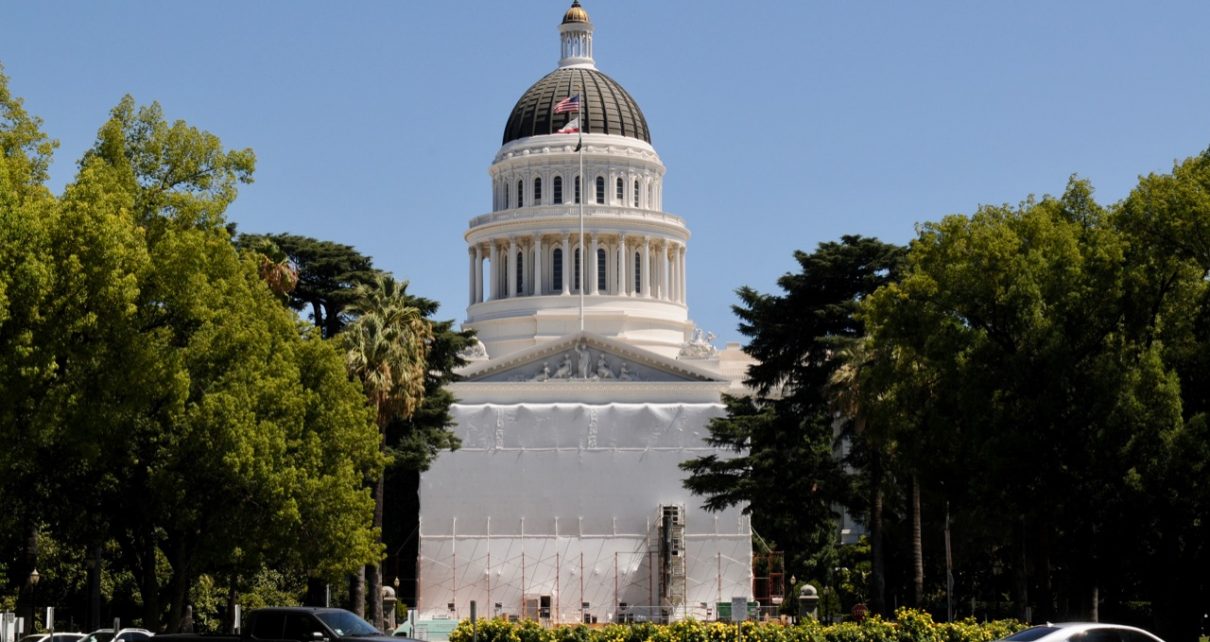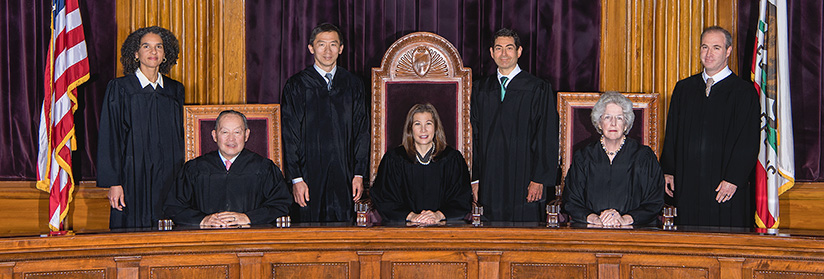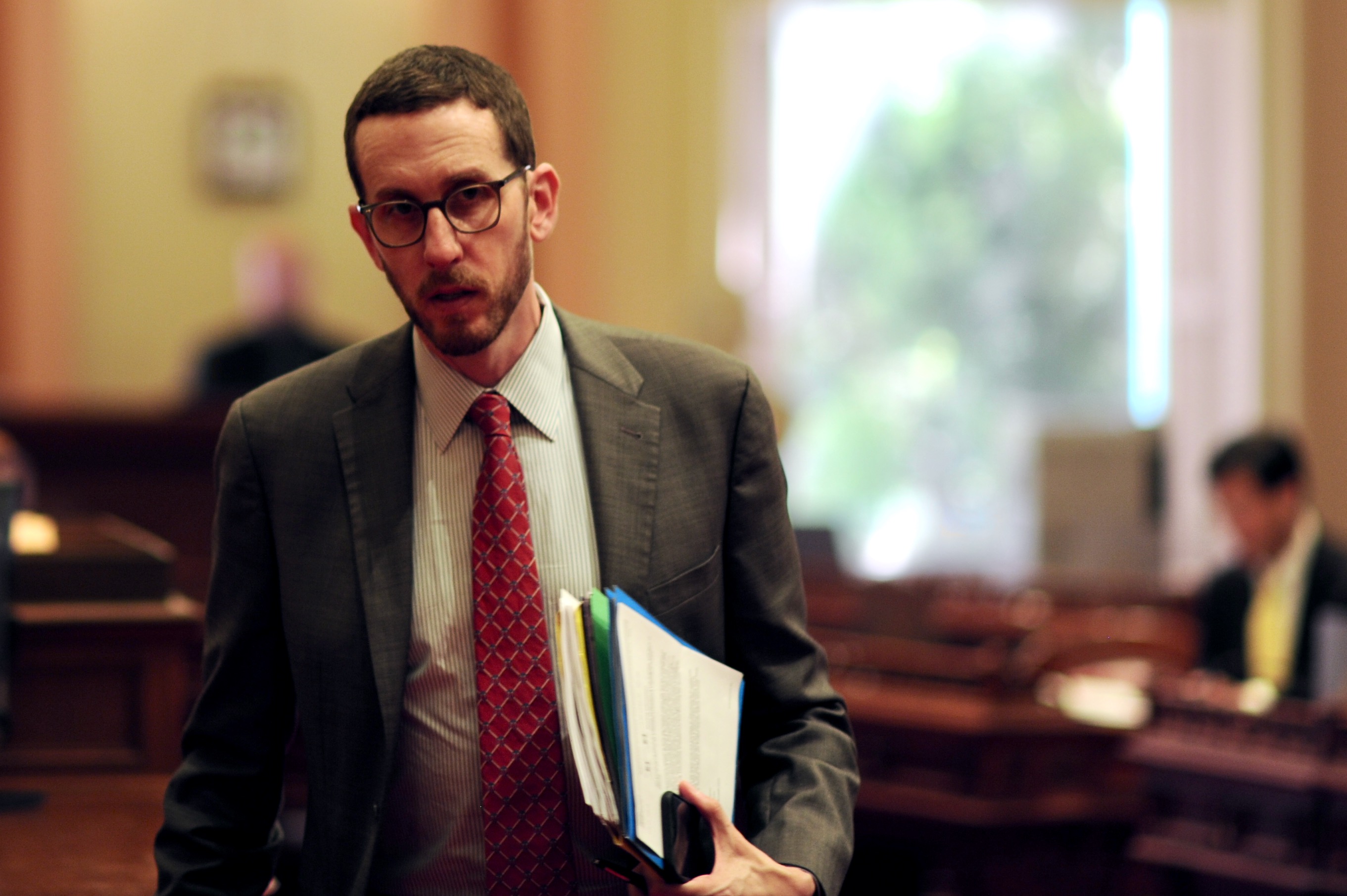
California State Capitol Annex demolition. (Photo: Kevin Sanders for California Globe)
Court Rules that California Capitol Annex Project Is Exempt from CEQA
‘The Annex Act, as recently amended by Senate Bill 174, is the current law here’
By Chris Micheli, October 7, 2024 7:29 pm
On October 7, 2024, the California Third District Court of Appeal, in its decision of Save Our Capitol! v. Department of General Services and the Joint Committee on Rules, addressed the question regarding the adequacy of an environmental impact report (EIR) for the State Capitol Annex Project. Of note is that the Third DCA previously considered a challenge to the EIR, and then did so in this case regarding the revised EIR.
The appellate court affirmed the superior court’s decision rejecting the challenge by Save Our Capitol based on recently-enacted legislation that exempted the Capitol Annex Project from CEQA’s requirements. Interestingly, the appellate court had already issued two published decisions regarding challenges to the EIR prepared by DGS.
In this appeal, Save Our Capitol argued that DGS violated CEQA. The appellate court ruled, “We reject these arguments based on recent legislation exempting the Capitol Annex Project from CEQA’s requirements.” At the time this third appeal was pending, in June 2024 (signed by the Governor on July 2), the Legislature decided to exempt the project from further CEQA review by enacting SB 174, which amended the Capitol Annex Act of 2016 to provide that “all work performed pursuant to this [act] shall be exempt from” CEQA’s requirements.
SB 174 was a budget trailer bill and so it “shall take effect immediately” because it “provides for appropriations related to the budget bill” and was “identified as related to the budget in the budget bill passed by the Legislature.” As a result, according to the appeals court, “Senate Bill 174 dictates the result in this appeal.” That is because, as Save Our Capitol pursued a writ of mandate, “[i]n mandamus proceedings, a reviewing court applies the law that is current at the time of judgment in the reviewing court.”
As the appeals court explained, “the Annex Act, as recently amended by Senate Bill 174, is the current law here. And applying that law to this case, we must reject Save Our Capitol’s claims that DGS violated CEQA.” As a result, “Save Our Capitol cannot prevail on its claims that DGS violated CEQA’s requirements.”
DGS unsuccessfully argued that the enactment of SB 174 made Save Our Capitol’s case “moot.” However, the appeals court rejected that argument and explained that SB 174 “instead makes clear that [Save Our Capitol] is not entitled to relief.” Save Our Capitol unsuccessfully argued that SB 174 violated Article IV, Section 28, which prohibits an urgency statute from, among other things, making alterations to certain parts of the Historic Capitol pursuant to the voters’ enactment of Prop. 3 in 1980.
In particular, the appeals court explained that Save Our Capitol made an interesting constitutional argument, claiming that “the public never had a meaningful opportunity to scrutinize Senate Bill 174, having been signed into law to take effect immediately only 10 days after its language was first proposed. For these two reasons, Save Our Capitol contends Senate Bill 174 undermines Proposition 3’s purpose—which it says, quoting the ballot pamphlet argument in favor of Proposition 3, was to give citizens notice “‘in advance of any proposal to alter or modify the Capitol’” and “‘an opportunity to express themselves before changes are made to it.’”
The appellate court then reviewed six arguments by DGS against the position advanced by Save Our Capitol. First, SB 174 was not an urgency statute. Second, SB 174 expressly prohibits expending dollars that are forbidden under Section 28 (i.e., Prop. 3). Third, any Annex Project appropriations are done by a separate appropriations bill and not SB 174. Fourth, SB 174 does not appropriate any dollars for the Annex Project. Fifth, DGS is not planning a visitor center at the West Steps of the Historic Capitol.
The appellate court raised the question whether Prop. 25 (which makes the budget bill, budget bill junior, and budget trailer bills effective upon enactment by a majority vote) would essentially override Prop. 3. However, it chose not to answer that question because the appeals court determined that Section 28 does not apply here as the language of SB 174 bars the use of funds that would be inconsistent with Section 28’s limitation.
- Construction of Eminent Domain Law - February 21, 2026
- Deposition of Expert Witnesses - February 20, 2026
- Response to Interrogatories - February 20, 2026




13 thoughts on “Court Rules that California Capitol Annex Project Is Exempt from CEQA”